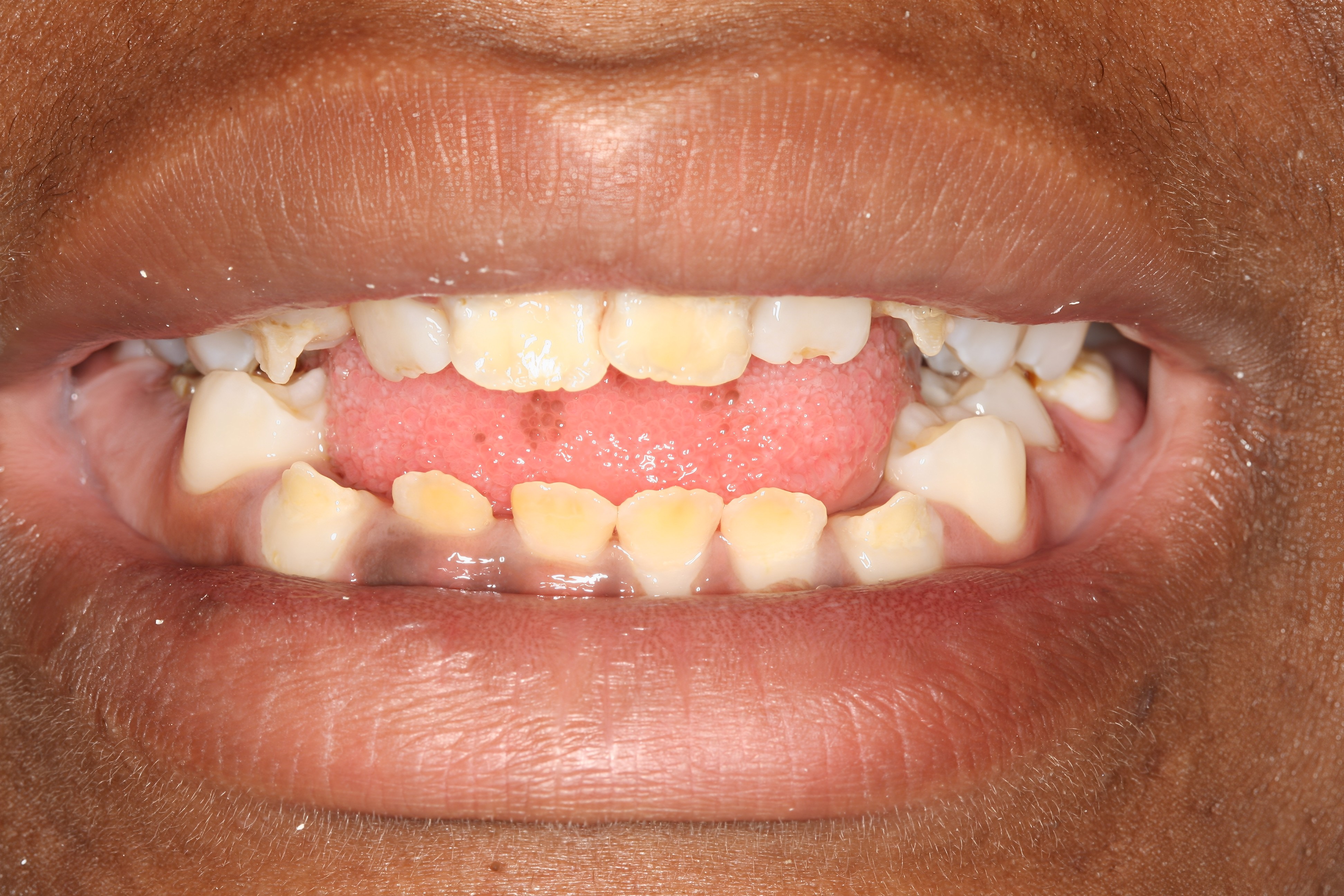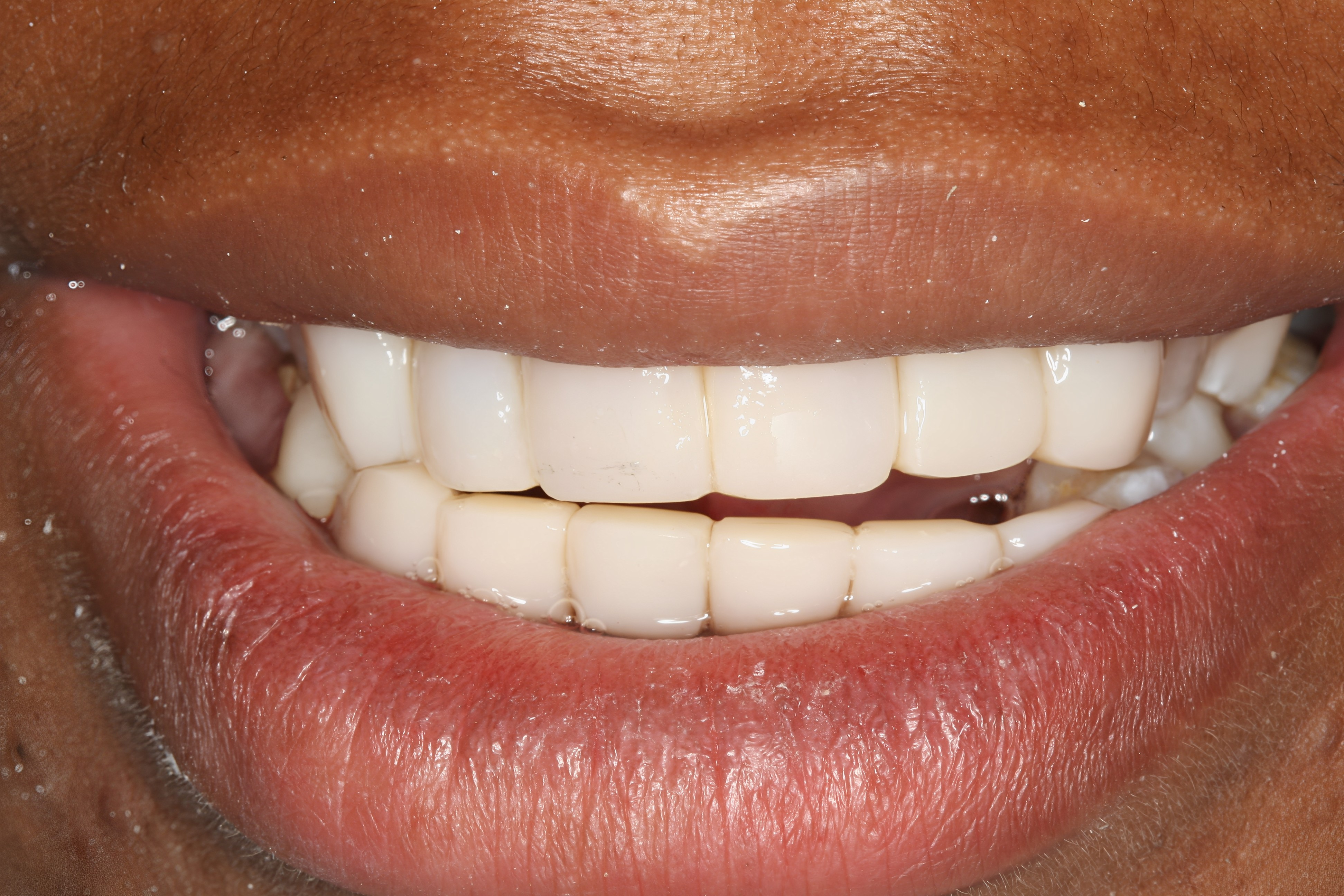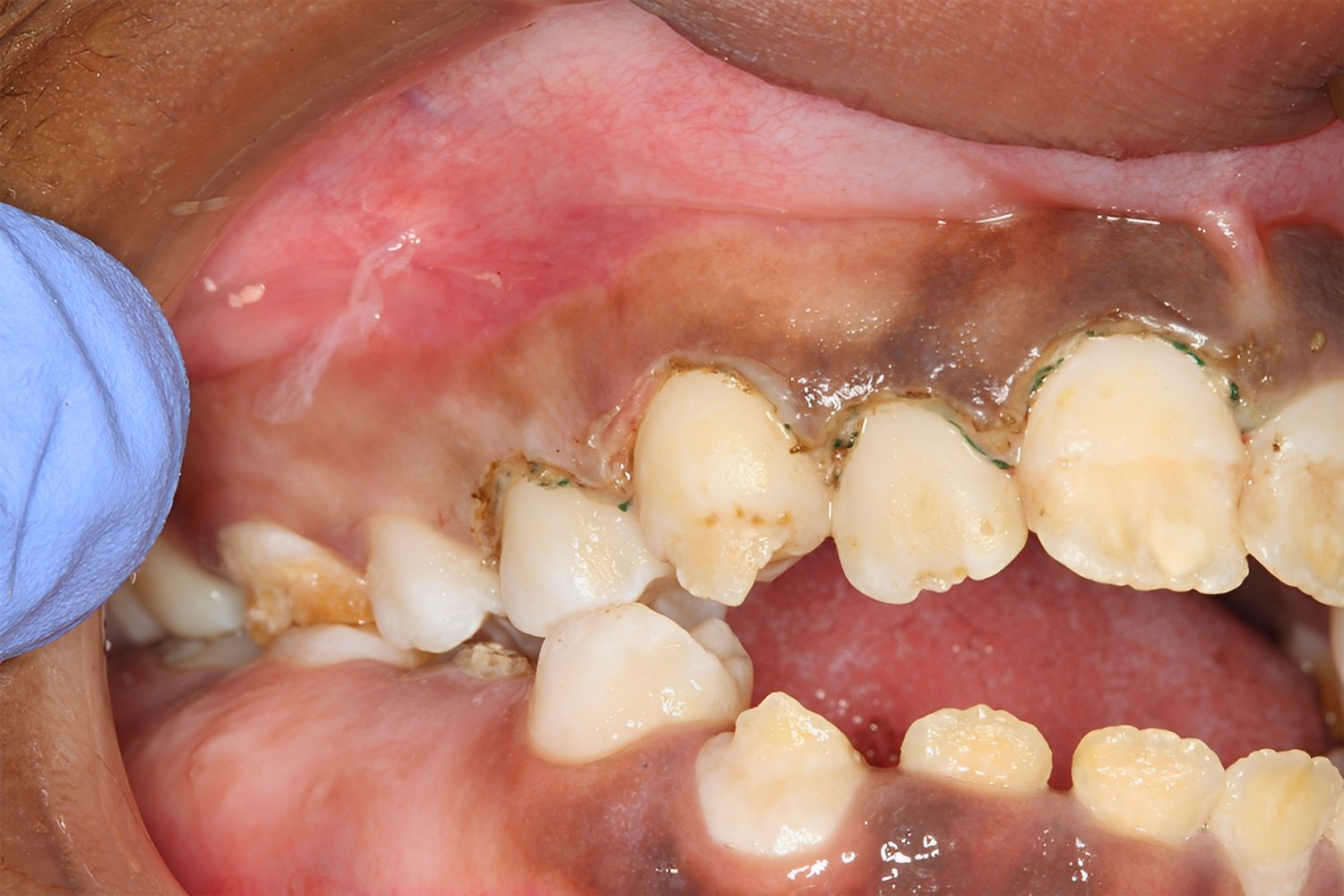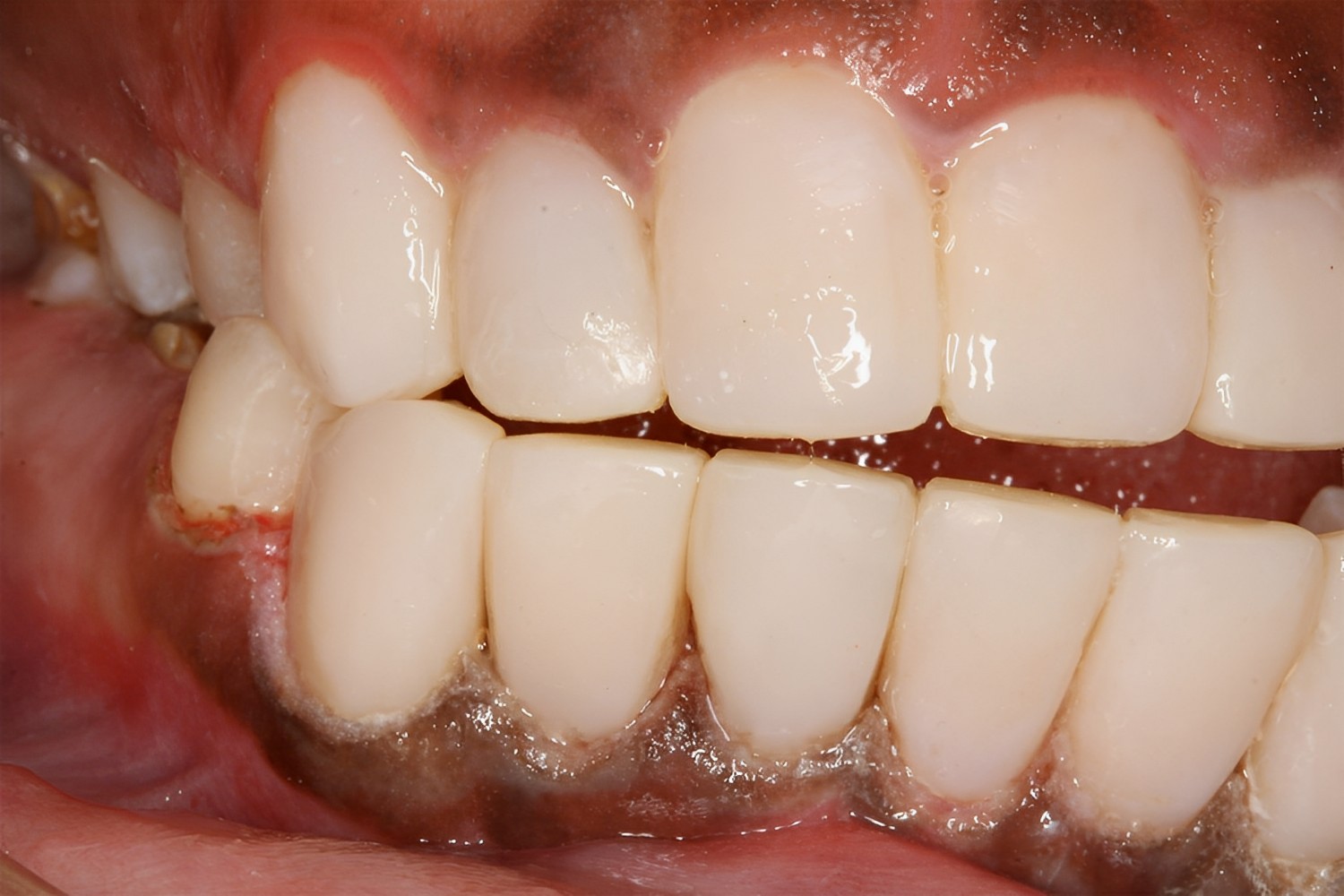

What are genetic dental defects?
Genetic dental defects are abnormalities of a patient’s oral tissues and bone that are genetically triggered. Oral genetic defects can range from simple to life-threatening, so it’s important to seek treatment if you are exhibiting any of the conditions described here. Our team at Hampton Dental Associates is trained and qualified to treat many of these problems.
What are the most common dental genetic defects?
Cleft Lip and Cleft Palate
The most common dental genetic defect, cleft lip and palate, occurs when the lips or the palate of the patient fail to fuse together during development inside the womb. It can be corrected through cleft and craniofacial surgery.
Cleft lip and palate treatment, especially in children, involves a series of treatments from multi-disciplinary teams. The teams coordinate cosmetic and reconstructive surgery to reposition the jaw, contour the facial bones, and address facial tissue issues. Speech and hearing therapy is needed to ensure normal speech development. These are not defects we treat.
Anodontia and Hypodontia
Hypodontia is the term used when some teeth fail to develop; anodontia is the absence of all the patient’s teeth. These are congenital defects where one or more of the patient’s permanent teeth fail to develop.
Both hereditary conditions affect the bone development of the upper and lower jaw and cause spacing problems in the future. These conditions are treated either by leaving any remaining primary teeth in place and then having the patient wear braces or by using bridges to correct the problem.
Supernumerary Teeth
This hereditary condition is the presence of extra permanent teeth; some of these teeth erupt while others remain in the gums. These extra teeth may appear anywhere in the gums and are irregularly shaped.
The appearance of the extra teeth causes problems with overcrowding, tooth displacement, and pathological complications such as cyst formation. Treatment involves a series of procedures to manage all the effects of the extra teeth, including pain management. Normally there is no pain with extra teeth but not enough room in someone's arch to accommodate them. So in some cases orthodontics and extractions are used to create a more esthetic smile.
Malocclusions
Malocclusions are problems with a patient’s bite that can be attributed to overcrowding of the teeth, missing teeth, or improper jaw alignment. Cases of malocclusions must be treated to prevent their progression to temporomandibular jaw (TMJ) disorders. Malocclusions are often treated with oral surgery, combined with orthodontic treatments, in order to achieve the perfect bite for the patient. Not every mal-occlusion needs to be treated! Only if by leaving it, there could be excessive wear or trauma to the remaining teeth.
Amelogenesis and Dentinogenesis Imperfecta
Amelogenesis Imperfecta is the defective formation of the tooth’s enamel, while Dentinogenesis Imperfecta is the defective formation of the tooth’s dentin. These hereditary conditions cause the tooth's surface to flake, leaving it weak, sensitive to temperature changes, and prone to damage. A full crown restoration is recommended to restore the appearance and function of the teeth. Dr. Richard Winter has an amazing article on how he has treated Amelogenesis Imperfecta in his articles list! Please check this out to see how he helped a grade school student avoid being teased and helped her with a beautiful solution to a genetic problem.


Periodontal Disease
Periodontal or gum disease occurs when bacteria infect the gum tissue, causing inflammation and damage to the tissues that support the teeth. If left untreated, periodontal disease can cause a patient to lose healthy teeth. It can be treated with scaling and root planing to clean the plaque covering the root and surfaces of the teeth. In more serious cases of gum disease, surgical treatment and using dentures or dental implants to replace missing teeth may be necessary. Hampton Dental Associates also has a LIghtScalpel CO2 laser to treat some gingival deformities. It is the most studied laser on the market today and has much better results than other lasers as it is strictly a soft tissue laser and that is what it what it was designed for. Look under articles on MMCL or modified minimal crown lengthening as Dr. Winter is a lecturer on laser dentistry and met Kumar Patel M.D. the inventor of the CO2 laser!!
Gingival Fibromatosis
This genetic condition causes gum tissue overgrowth due to the over-production of collagen. The condition is treated through gingivectomy, a surgical procedure that removes the overgrown gum tissue.
Oral Cancer
Oral cancer appears as tiny white or red spots and sores in any area in the mouth. Although oral cancer is commonly caused by alcohol and tobacco use, genetic predisposition increases the risk of developing oral cancer in most patients.
Those with a genetic predisposition should have regular dental check-ups; this will allow your dentist to detect oral cancer early to increase the chances of successful treatment. Being able to find and remove the lesions before they become cancerous vastly decreases mortality due to oral cancer. In more serious cases of oral cancer, patients may be required to undergo surgery and radiation or chemotherapy treatments.
Read more about a Genetic Defect patient case in Milwaukee, WI.
How We Treat Oral Genetic Defects
Every patient in our practice is given our time, attention, and care. We treat each person individually, taking additional care to ensure our treatment plans accommodate their needs.
Dr. Winter ensures that your treatment plan is bespoke to your needs. This means accounting for your medical history, current oral health, and any concerns you have. We prioritize health, functionality, and risk management while considering cosmetic improvements some patients would like to make.
Read our “Ask the Dentist” column to learn more. You can send Dr. Winter a question or contact our office directly anytime. We are here to help. Please look at his before and after photos and articles!
FAQs
What People Say About Us!
"I have scheduled with Hampton Dental for years. They are quit the Professional Team. They are always willing to educate & explain the why’s with regards to the services & procedures that you are having done. I always feel confident with each appointment, that things are going to be completed with the utmost care & professionalism."
– P.R. 9/2021
Click here to read more reviews.
Call 414-464-9021 for information on any of our services.
Check out our Dental Blog >>
Read our Patient Case Studies >>
Hampton Dental Associates is proud to offer affordable dentistry programs to help you regain your perfect smile.
Learn more about our affordable dentistry options.



